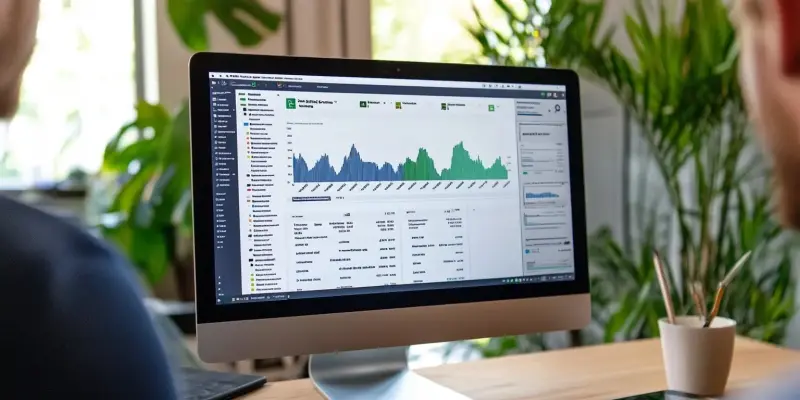As the clock ticks towards April 30, 2031, businesses relying on Microsoft Dynamics GP are faced with a significant turning point. Microsoft has made it clear that it will cease providing updates and new features for the ERP solution by this deadline, leaving many companies pondering their next steps. Dynamics GP has been a reliable tool for managing financials, inventory, and operations for countless organizations, but with an end in sight for official support, a proactive approach to future-proofing ERP systems has never been more crucial. The looming discontinuation not only brings about an urgency to consider alternative ERP paths but also underscores the strategic implications for businesses aiming to stay competitive and efficient in their operations.
Dynamics GP users must initiate an in-depth evaluation of their current and future business requirements to determine the most viable course of action. Staying on GP after the support ends could lead to a range of operational setbacks, from security vulnerabilities to compatibility issues with emerging technologies. Moreover, with no future updates or features planned, businesses may find themselves falling behind competitors who embrace more advanced, updated systems. Nevertheless, the decision to transition from a long-standing ERP platform is far from straightforward, encompassing financial, operational, and personnel considerations that require thorough planning and execution.
Transitioning to Dynamics 365 Business Central
One of the most prominent options for businesses is transitioning to Microsoft Dynamics 365 Business Central, a modern, cloud-based ERP solution designed to meet the evolving needs of contemporary enterprises. Business Central provides several advantages over its predecessor, including seamless accessibility across devices, continuous automatic updates, and the scalability to grow with the business. Such features ensure that companies remain agile and capable of responding to market changes and technological advancements without the need for significant, recurring investments.
Despite its benefits, the transition to Business Central is not without its challenges. Companies must engage in meticulous planning to ensure a smooth migration, involving data mapping, system customization, and thorough testing phases. Microsoft has stepped up to assist in this transition by providing a suite of tools and resources aimed at simplifying the migration. These aids include detailed migration guides, tools to assist with data transfer, and support services to help businesses navigate the complexities involved. However, the onus still lies with the companies to allocate sufficient time, budget, and expertise to manage the transition effectively and mitigate risks associated with data loss or system downtime.
Additionally, businesses might need to invest in training for their workforce to ensure a seamless adoption of the new system. Employees who are accustomed to Dynamics GP must acclimate to the features and interface of Business Central. This transition might necessitate comprehensive training programs and possibly temporary reductions in productivity as staff get comfortable with the new ERP environment. Nonetheless, the long-term gains in efficiency, security, and capability significantly outweigh the temporary disruptions, making it a strategically sound move for businesses aiming to stay competitive in a rapidly evolving market landscape.
Exploring Acumatica as an Alternative
Another compelling option for businesses considering a shift from Dynamics GP is Acumatica, a cloud-based ERP solution lauded for its flexibility and user-centric design. Acumatica’s dynamic pricing model, which scales with business needs, presents a cost-effective alternative for companies wary of the potentially high costs associated with more rigid pricing structures. Its extensive functional repertoire is tailored to address the specific requirements of various industries, offering a level of customization that can closely align with unique business processes and objectives.
Transitioning to Acumatica, like moving to Business Central, demands careful strategizing. Companies need to evaluate their functional needs comprehensively to determine whether Acumatica’s capabilities align with their long-term goals. A comparative analysis facilitated by consulting firms, like Logan Consulting, can prove invaluable. By breaking down the similarities and differences between Business Central and Acumatica, businesses can make more informed decisions, weighing factors such as cost, functionality, and ease of integration with existing systems. This rigorous vetting process ensures that the chosen ERP solution not only meets current operational requirements but also positions the company for future growth and adaptation.
Moreover, the appeal of Acumatica isn’t solely in its scalability and pricing. The platform’s robust support for mobile and remote access further enhances its attractiveness in an era where remote work and mobile operations are increasingly the norm. By empowering employees to access critical business functions from any location, Acumatica supports the modern workforce’s demand for flexibility without sacrificing security or efficiency. However, like any major ERP transition, businesses must be prepared to invest in training and support to maximize the platform’s potential and ensure a smooth, disruption-free transition.
Strategic Implications and Next Steps
As the clock ticks towards April 30, 2031, businesses using Microsoft Dynamics GP face a critical juncture. Microsoft has announced it will stop providing updates and new features for the ERP solution by this date, leaving many companies to contemplate their next moves. Dynamics GP has long been a dependable tool for managing financials, inventory, and operations, but the end of official support underscores the necessity for a proactive approach to future-proofing ERP systems. This termination brings an urgency to explore alternative ERP solutions and highlights the strategic implications for maintaining competitiveness and operational efficiency.
Dynamics GP users must start a thorough evaluation of their current and future business needs to determine the best path forward. Continuing with GP after support ends could result in operational challenges, such as security risks and compatibility issues with new technologies. Additionally, with no further updates or features, businesses may lag behind competitors who adopt more advanced systems. Nonetheless, transitioning from a long-established ERP platform involves complex financial, operational, and personnel considerations, demanding careful planning and execution.

